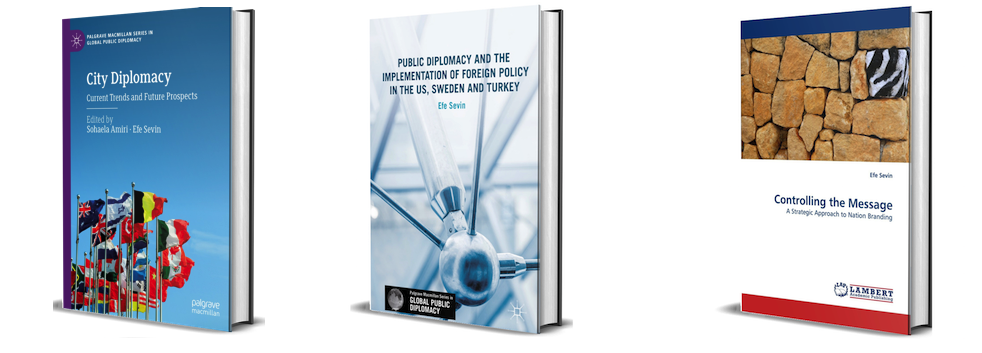CALL FOR PAPERS
Special Issue of Place Branding and Public Diplomacy
Issue Theme: Methodological Approaches in Public Diplomacy
Guest Editors:
Kadir Jun Ayhan (Hankuk University of Foreign Studies)
Efe Sevin (Towson University)
The term public diplomacy has been around since the 1960s. Throughout the decades, literature has grown richer in conceptual, descriptive and normative studies. However, robust study methods have been lacking. The scientific study of public diplomacy programs and their outcomes have been a struggle for both academics and practitioners (Banks, 2011; Sommerfeldt & Buhmann, 2019). Empirical studies are often built on anecdotal episodes from the field or limited to quantitative case studies on place branding or country image. Ontological choices in public diplomacy evaluation are rarely addressed in the literature (Pamment, 2014).
Against this background, we aim to establish a platform for studies that focus on how public diplomacy practices can be studied and their outcomes can be evaluated more rigorously. Papers can engage in empirical work, but we are more interested in methodological discussions rather than empirical findings.
In line with the objectives of Place Branding and Public Diplomacy journal, we position this special issue to provide a venue for practitioners and scholars of public diplomacy to scrutinize instruments of methodology and evaluation for more rigorous studies in the field. We are open to papers that use quantitative, qualitative or mixed methods. Papers that address validity issues in public diplomacy research and/or evaluation are also welcome.
Potential topics that might be addressed include but are not limited to the following broad methodological discussions in public diplomacy:
- Frameworks and associated robust methodologies for scientific study of public diplomacy;
- Data needed for rigorous public diplomacy evaluation and research and validity issues;
- Units of analysis and causal connection between them;
- The integration of computational methods with traditional data;
- Differentiating outcome and impact assessment from measurement of outputs;
- Establishing causation through qualitative and/or historical case studies;
- Application of policy evaluation and analysis tools for public diplomacy programs;
- Use of experiments in the study of public diplomacy;
- Systematization of practitioners’ knowledge base and best practices in public diplomacy;
- Innovative methods for public diplomacy evaluation;
- Policy learning and policy transfer based on impact studies in public diplomacy;
- The role of context and cultures in public diplomacy evaluation.
References
Banks, R. (2011). A Resource Guide to Public Diplomacy Evaluation. Los Angeles: Figueroa Press. https://www.uscpublicdiplomacy.org/sites/uscpublicdiplomacy.org/files/useruploads/u35361/2011%20Paper%209.pdf
Pamment, J. (2014). Articulating influence: Toward a research agenda for interpreting the evaluation of soft power, public diplomacy and nation brands ion brands. Public Relations Review, 40(1), 50–59.
Sommerfeldt, E. J., & Buhmann, A. (2019). The status quo of evaluation in public diplomacy: Insights from the US State Department. Journal of Communication Management. https://doi.org/10.1108/JCOM-12-2018-0137
Submissions
Extended abstracts (500 words), accompanied by a short bio sketch should be submitted via e-mail to both guest editors (ayhan[at]hufs.ac.kr and esevin[at]towson.edu) with PBPD in the subject line.
Please note that all articles will go through a peer-review process. Acceptance of an abstract does not guarantee publication in the special issue.
Timeframe:
Abstract submission deadline: April 30, 2020
Notification on submitted abstracts: May 15, 2020
Article submission deadline: January 25, 2021
Notification of article acceptance/ rejection: April 16, 2021
Deadline for the final submission of revised manuscripts: May 31, 2021
Expected publication date (online first): December 2021
Contact
Informal inquiries about the project can be directed to either guest editor (Kadir Jun Ayhan: ayhan[at]hufs.ac.kr, Efe Sevin: esevin[at]towson.edu)
PDF Version of the call can be found here.
